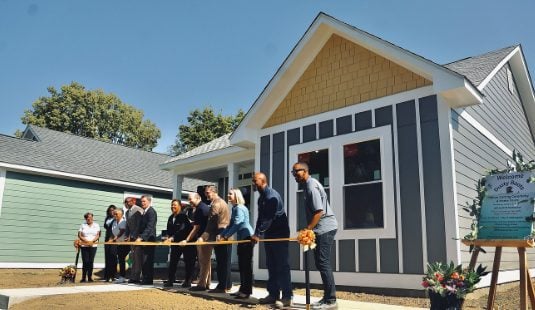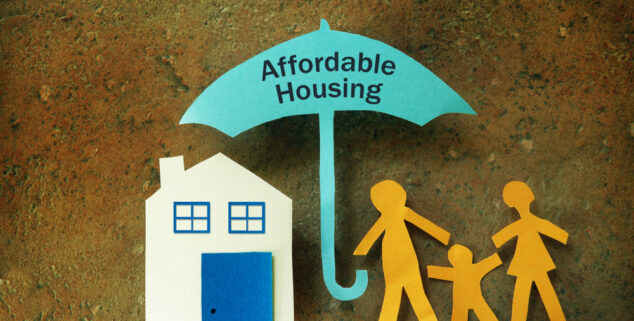Economical Homeownership Options for First-Time Homebuyers
As the housing market proceeds to develop, first-time buyers deal with distinct challenges in safeguarding budget-friendly homeownership choices. These initiatives not just assist in homeownership yet also foster community stability and economic growth.
Federal Government Aid Programs
Federal government assistance programs play an essential role in making homeownership possible for many individuals and families. These programs intend to relieve the monetary concern connected with buying a home, specifically for novice buyers. By using financial assistance, gives, and tax obligation rewards, federal government initiatives assist connect the void in between rising housing expenses and the acquiring power of possible homeowners.
Different programs are offered at the government, state, and neighborhood degrees. As an example, the Federal Real Estate Management (FHA) offers insurance policy on finances, allowing loan providers to provide extra favorable terms, such as lower deposits and reduced interest rates. In addition, state and neighborhood federal governments usually have their very own campaigns, which might include down repayment support programs, homebuyer education courses, and desirable home mortgage terms.
These programs are created to attend to the special difficulties faced by reduced- to moderate-income family members, including limited savings and credit score background. By promoting an atmosphere where homeownership is more available, government support programs not only sustain private goals but also add to neighborhood stability and financial growth. Recognizing and using these resources can dramatically improve the prospects of effective homeownership.
Low-Down-Payment Home Loans
For lots of aspiring house owners, low-down-payment mortgages offer a practical path to homeownership, especially in today's tough housing market. These mortgage choices typically call for deposits ranging from 3% to 5%, making it simpler for new buyers to get in the marketplace without the concern of saving for a significant deposit.
Numerous lenders use low-down-payment programs, including traditional car loans backed by Fannie Mae and Freddie Mac, along with government-backed options like FHA finances. These mortgages are created to accommodate individuals with minimal savings while still supplying competitive rate of interest prices. Importantly, they permit customers to retain more cash money for other crucial expenditures, such as moving costs, home assessments, and prospective restorations.
Nonetheless, potential home owners ought to be mindful of the trade-offs related to low-down-payment home mortgages. A smaller deposit may lead to higher month-to-month settlements and the necessity of personal home loan insurance policy (PMI), which protects loan providers in instance of default. It is important for new customers to perform detailed study and seek advice from with mortgage specialists, ensuring they select a low-down-payment choice that aligns with their lasting financial goals.
First-Time Buyer Grants
Numerous novice property buyers discover that gives can substantially relieve the economic concern of acquiring a home, matching low-down-payment home mortgage choices. These gives, typically provided by state and local federal governments or non-profit companies, supply financial aid that does not need settlement, making them an appealing alternative for those entering the real estate market.
Qualification for novice buyer gives normally depends on earnings, credit reliability, and the purchase cost of the home. Many programs are created to assist reduced- to moderate-income families, making certain that support gets to those who require it most. The application process typically involves documentation of economic status, buyer education training courses, and in some cases also a commitment to remain in the home for a specific duration.
The amount useful varies commonly, with some gives giving numerous thousand dollars to help cover closing expenses or down repayments. Looking into available grants in your area is necessary, as programs regularly change and may have particular demands. By leveraging these funds, new homebuyers can make homeownership more available, eventually attaining their desire for possessing a home while minimizing the initial economic pressure.
Cutting-edge Area Campaigns
Cutting-edge neighborhood efforts are playing a crucial duty in increasing economical homeownership options for residents. These campaigns usually entail joint efforts between neighborhood federal governments, charitable organizations, and private field stakeholders to develop sustainable housing remedies customized to neighborhood needs.
One notable strategy is the facility of neighborhood land Full Article depends on (CLTs), which allow residents to purchase homes while the land continues to be possessed by the trust fund. This model helps keep affordability in time and protects against speculative rate boosts. Additionally, CLTs often provide academic resources and assistance services to encourage newbie homebuyers.
An additional reliable initiative is the development of mixed-income housing tasks, which blend budget friendly devices with market-rate homes. This method fosters comprehensive communities and minimizes the stigma commonly related to low-income real estate. Regional federal governments are progressively supporting zoning reforms to assist in the construction of accessory house devices (ADUs), which can give additional rental income for homeowners while increasing real estate schedule.

Tips for Budgeting and Saving

Next, establish a devoted savings account especially for your future home purchase. Goal to save a portion of your income continually, preferably 20% or more, to develop a significant deposit. Use automation devices, such as direct down payment or automated transfers, to investigate this site make saving easier and a lot more consistent.
Additionally, consider taking on the 50/30/20 rule: assign 50% of your income to needs, 30% to desires, and 20% to cost savings and financial obligation settlement - Affordable Homeownership. This technique promotes balanced monetary health

Final Thought
In summary, budget friendly homeownership alternatives for first-time buyers incorporate various resources such as federal government assistance programs, low-down-payment mortgages, and grants. These efforts not just help with entry into the housing market but also promote community stability and economic growth. By leveraging these economic tools, individuals can navigate the intricacies of homeownership, eventually adding to an extra fair housing landscape. Proceeded assistance and understanding of these programs are crucial for boosting accessibility to homeownership opportunities.
As the housing market proceeds to advance, newbie property buyers face unique obstacles in safeguarding budget friendly homeownership choices. By cultivating an atmosphere where homeownership is a lot more easily accessible, government aid programs not just support specific aspirations however also contribute to community stability and economic development. By leveraging these economic sources, newbie buyers can make homeownership much more available, inevitably accomplishing their desire of having a home while minimizing the preliminary economic strain.
In recap, budget friendly homeownership options for new homebuyers encompass numerous sources such as government support programs, low-down-payment see this website home loans, and gives. By leveraging these economic devices, individuals can navigate the complexities of homeownership, inevitably adding to a more equitable housing landscape.